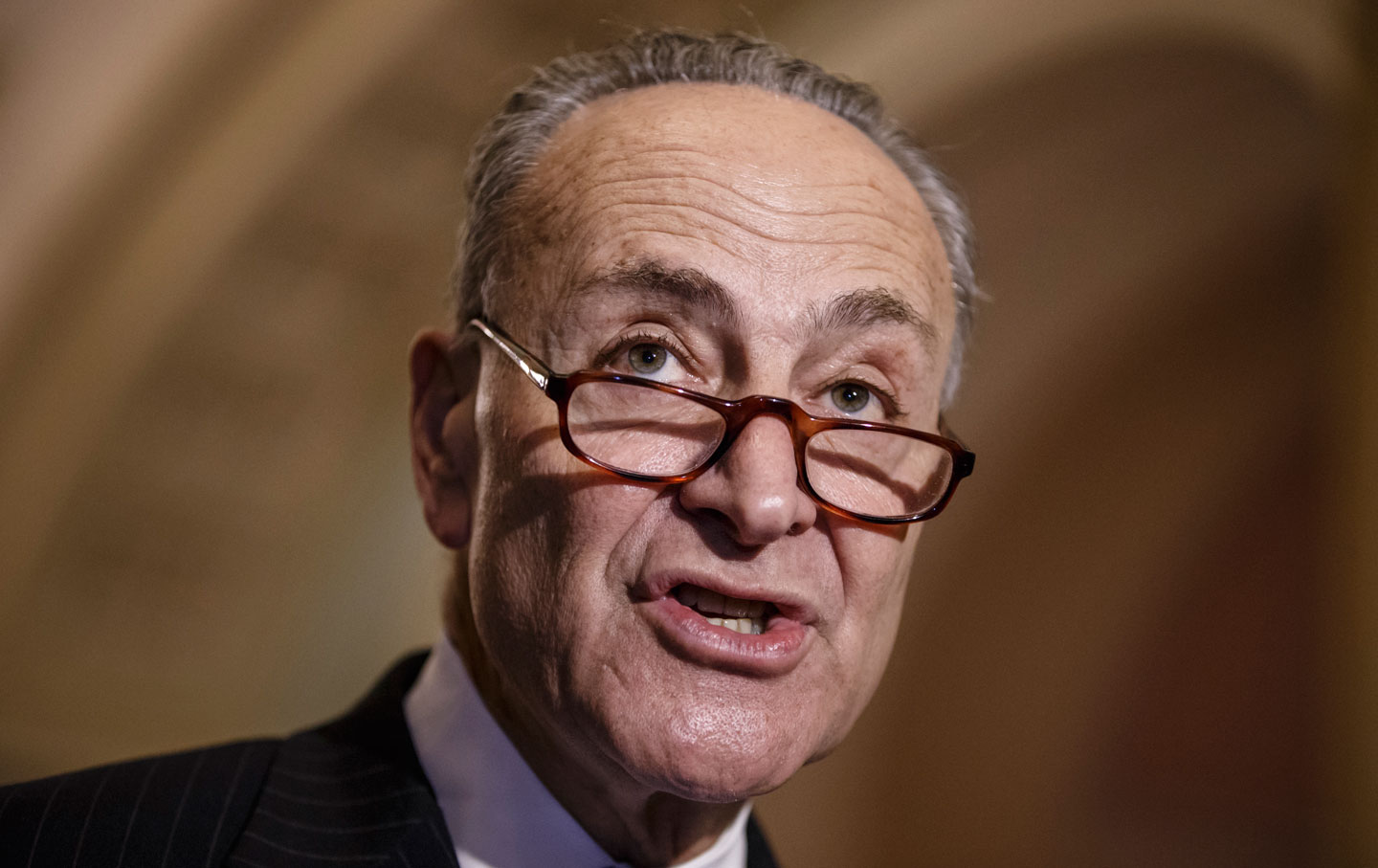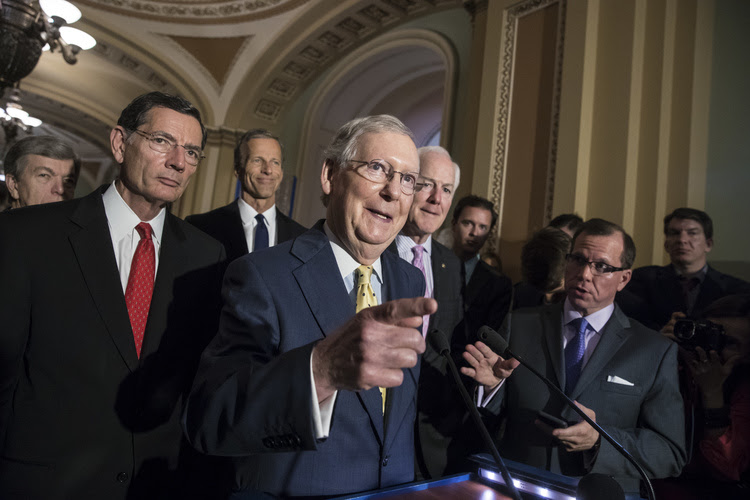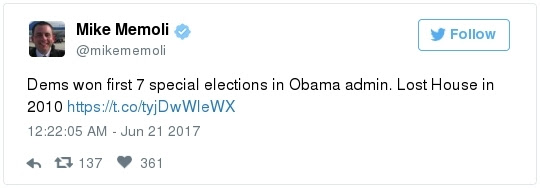 |
| . (Photo by Alexei Druzhinin/AFP/Getty Images. Photo illustration by Nick Kirkpatrick/The Washington Post.) |
The Post just published a detailed, inside look at how the Obama administration sought to punish Russia for its interference in the 2016 elections. Here are a few of the most interesting nuggets from the story by national security correspondents Greg Miller, Ellen Nakashima and Adam Entous:
“Early last August, an envelope with extraordinary handling restrictions arrived at the White House. Sent by courier from the CIA, it carried ‘eyes only’ instructions that its contents be shown to just four people: President Barack Obama and three senior aides." The envelope contained allegations that Russian President Vladimir Putin was directly and personally trying to influence the U.S. elections, but went even further: "The intelligence captured Putin’s specific instructions on the operation’s audacious objectives — defeat or at least damage the Democratic nominee, Hillary Clinton, and help elect her opponent, Donald Trump."
"The material was so sensitive that CIA Director John Brennan kept it out of the President’s Daily Brief, concerned that even that restricted report’s distribution was too broad. The CIA package came with instructions that it be returned immediately after it was read. To guard against leaks, subsequent meetings in the Situation Room followed the same protocols as planning sessions for the Osama bin Laden raid."
“The Obama administration secretly debated dozens of options for deterring or punishing Russia, including cyberattacks on Russian infrastructure, the release of CIA-gathered material that might embarrass Putin and sanctions that officials said could 'crater' the Russian economy ... in late December, Obama approved a modest package combining measures that had been drawn up to punish Russia for other issues."
Some former Obama officials don't think they did enough to stop Putin's meddling. “It is the hardest thing about my entire time in government to defend,” said a former senior Obama administration official involved in White House deliberations on Russia. “I feel like we sort of choked.”
----
It was not until after Labor Day that Brennan had reached all members of the “Gang of Eight” in Congress. In September, Jeh Johnson, Jim Comey and White House Homeland Security adviser Lisa Monaco briefed congressional leaders, but it quickly "devolved into a partisan squabble" in which Democrats wanted to make the threats public while McConnell was "skeptical."
The Obama administration sent two other warnings to the Kremlin: On Oct. 7, Susan Rice summoned Russian Ambassador to the U.S. Sergey Kislyak and handed him a message for Putin; and on Oct. 31, there was a final pre-election message sent "via a secure channel to Moscow originally created to avert a nuclear exchange."
------
Obama appears to have taken serious and secretive cyber countermeasures against Russia post-election by "authorizing a new covert program involving the NSA, CIA and U.S. Cyber Command”: “The cyber operation is still in its early stages and involves deploying 'implants' in Russian networks deemed 'important to the adversary and that would cause them pain and discomfort if they were disrupted,' a former U.S. official said." (Read the whole story here.)
 |
PAUL WALDMAN, WASHINGTON POST
What comes through again and again is that the Obama administration was terrified of looking partisan or doing anything that might seem like it was putting a thumb on the scale of the election, and the result was paralysis...
Democrats are forever worried about whether they might be criticized, whether Republicans will be mean to them, whether they might look as though they’re being partisan, and whether they might be subjected to a round of stern editorials. Republicans, on the other hand, just don’t care. What they’re worried about is winning, and they don’t let the kinds of criticism that frightens Democrats impede them. It makes Republicans the party of “Yes we can,” while Democrats are the party of “Maybe we shouldn’t.”
So as the full scope of the Russian assault on the American election became clear, two things happened again and again. First, whenever the Obama administration would approach Republicans to try to issue some kind of bipartisan condemnation or coordinate efforts to minimize the effects of the attack, the GOP response was essentially, “To hell with you, Democrats,” after which the administration would slink back and do little or nothing....
“The Dems were, ‘Hey, we have to tell the public,’ ” .... But Republicans resisted, arguing that to warn the public that the election was under attack would further Russia’s aim of sapping confidence in the system....the always-shrewd McConnell knew exactly what button he had to push to get the administration to back off:
According to several officials, McConnell raised doubts about the underlying intelligence and made clear to the administration that he would consider any effort by the White House to challenge the Russians publicly an act of partisan politics.
In other words, Republicans acted like partisans, and successfully rolled over Democrats who didn’t want to seem like partisans. Within weeks, the administration decided not to take any action against Moscow before the election. “They feared that any action would be seen as political and that Putin, motivated by a seething resentment of Clinton, was prepared to go beyond fake news and email dumps.”
----
There are some excuses you can come up with for the Obama administration’s hesitance to act decisively against this threat, both in terms of publicizing it and in retaliating against Russia. It was concerned about setting off an escalating conflict with Russia, and its actions were colored by its assumption that Clinton would win, which was of course the assumption held by nearly everyone, Republican or Democrat. But imagine what would have happened if there were a Republican administration in office, and Russia mounted a full-scale assault on our election with the obvious intent of hamstringing the future Republican president (at a minimum) or getting the Democrat elected. Could anyone who knows anything about today’s GOP actually believe it would have been so tentative?
Not on your life. Every Republican in Washington from the president on down would have been on TV every day saying that the Democratic nominee was a Russian stooge. They would have undertaken a comprehensive package of retaliatory measures immediately, not waiting until after the election was over. They would have talked about nothing else for months.
That’s not because they would have seen it as a profound threat to American sovereignty. We know that, because they don’t care about that threat right now, as real as it is. Heck, the Republican nominee for president not only didn’t condemn the Russian assault, he celebrated it. Donald Trump gleefully brought up Wikileaks 164 times on the campaign trail and publicly implored Russia to hack into his opponent’s email to see if any damaging information might be found there. Republicans have steadfastly resisted any investigation into what happened in the 2016 election.
No, they would have seen it as a threat to their own partisan interests, and responded with the same ferocity that they bring to all partisan conflicts. They wouldn’t have worried about being criticized or being called partisan; they would have fought.
And in that case, it would have been the right thing to do. Instead, Vladimir Putin got just about everything he wanted: a destabilized, delegitimized, demoralized American system, and the election of a president whose advisers are tied up in an intricate web of connections to Russia and who is himself bizarrely solicitous of Putin’s needs and wants.
There’s no way to know whether the election might have turned out differently if the Obama administration had reacted more aggressively to the Russian assault. What we do know is that once again, Democrats were paralyzed by their worries about how things might look. It’s not something Republicans ever concern themselves with — and all you have to do is look at who’s in charge in Washington to see the results.
-----
“As the United States grapples with the implications of Kremlin interference in American politics, European countries are deploying a variety of bold tactics and tools to expose Russian attempts to sway voters and weaken European unity,” Dana Priest and Michael Birnbaum report. “Across the continent, counterintelligence officials, legislators, researchers and journalists have devoted years — in some cases, decades — to the development of ways to counter Russian disinformation, hacking and trolling. And they are putting them to use as never before. Sweden has launched a nationwide school program to teach students to identify Russian propaganda. In Germany, all political parties have agreed not to employ automated bots in their social media campaigns because such hard-to-detect cyber tools are frequently used by Russia to circulate bogus news accounts. France and Britain have successfully pressured Facebook to disable tens of thousands of automated fake accounts used to sway voters close to election time … Four dozen officials and researchers interviewed recently sounded uniformly more confident about the results of their efforts … than officials grappling with it in the U.S., which one European cyber-official described as ‘like watching ‘House of Cards.’”
-------------------------------------------------------------------------------
-- The Kremlin has recalled Russian ambassador to the U.S. Sergey Kislyak – bringing back to Moscow the longtime diplomat whose meetings with various Trump officials are currently being investigated by the FBI.


/cdn.vox-cdn.com/uploads/chorus_image/image/53681983/649341400.1489441775.jpg)




/cdn.vox-cdn.com/uploads/chorus_image/image/55278137/681525160.0.jpg)






